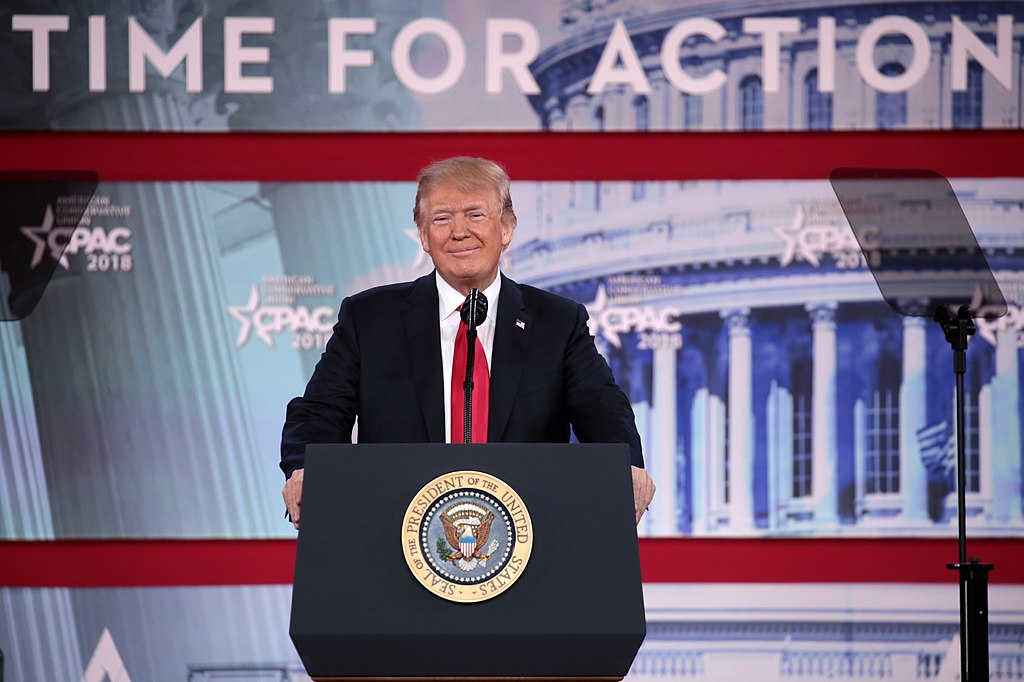In 2025, Donald Trump has unveiled his ambitious strategy to address the nation’s mounting debt, sparking heated debates across economic and political spectrums. As the U.S. national debt surpasses $35 trillion, Trump’s proposed solutions promise sweeping fiscal reforms, though skeptics warn of potential economic turbulence.
Cutting Spending: Targeting Federal Programs and Agencies
Central to Trump’s plan is a dramatic reduction in federal spending, a move he describes as “unavoidable” to stabilize the economy. His administration has proposed slashing budgets across multiple government agencies, including the Department of Education and the Environmental Protection Agency, while freezing non-defense discretionary spending.
Programs such as Medicaid and Social Security have also come under scrutiny, with Trump calling for reforms to address inefficiencies. These proposals have drawn sharp criticism from opponents, who argue that reducing benefits could harm millions of Americans reliant on these safety nets.
Supporters, however, praise the bold approach, emphasizing the need for fiscal discipline. “The era of reckless spending is over,” Trump declared during a recent press conference, where he outlined his vision for a leaner federal government.
Economic Growth and Tax Reforms
In addition to spending cuts, Trump aims to stimulate economic growth through tax reforms and deregulation. His administration has proposed lowering corporate tax rates to encourage business investment and job creation, while offering incentives for repatriating overseas profits.
Critics question whether these measures will generate enough revenue to offset reduced government spending. They also raise concerns about the impact on wealth inequality, as tax breaks could disproportionately benefit corporations and high-income earners.
Trump’s advisors counter that fostering a pro-business environment will spur economic growth, creating a broader tax base and reducing reliance on federal debt. “We’re betting on American innovation and productivity to lead us out of this crisis,” said Treasury Secretary Steven Mnuchin in a recent interview.
Public and Expert Reactions
Trump’s debt plan has ignited a firestorm of reactions online, reflecting the deep divide over its potential consequences:
- @DebtHawk2025: “Trump’s plan is a disaster waiting to happen. Slashing Social Security will hurt millions of retirees.”
- @FiscalReformNow: “Finally, someone willing to make the tough choices! We need to stop living beyond our means.”
- @EconExpertJane: “Lowering taxes for corporations while cutting safety nets is not fiscal responsibility; it’s economic sabotage.”
- @MiddleClassVoice: “Will these cuts actually help working families, or just line the pockets of the rich?”
- @PolicyWonk77: “Repatriation incentives might work, but only if paired with strict accountability measures for corporations.”
- @Trump2025Fan: “This is the leadership we voted for! Bold moves to save America’s future.”



 ICE Hiring Surge Raises Vetting Concerns Amid Rapid Expansion
ICE Hiring Surge Raises Vetting Concerns Amid Rapid Expansion  Pakistan-Afghanistan Tensions Escalate as Taliban Offer Talks After Airstrikes
Pakistan-Afghanistan Tensions Escalate as Taliban Offer Talks After Airstrikes  Pentagon Leaders Monitor U.S. Iran Operation from Mar-a-Lago
Pentagon Leaders Monitor U.S. Iran Operation from Mar-a-Lago  Israel Launches Fresh Strikes on Iran After Death of Supreme Leader Ayatollah Khamenei
Israel Launches Fresh Strikes on Iran After Death of Supreme Leader Ayatollah Khamenei  Germany and China Reaffirm Open Trade and Strategic Partnership in Landmark Beijing Visit
Germany and China Reaffirm Open Trade and Strategic Partnership in Landmark Beijing Visit  Trump to Address Nation as U.S. Launches Strikes in Iran, Axios Reports
Trump to Address Nation as U.S. Launches Strikes in Iran, Axios Reports  Venezuela Oil Exports to Reach $2 Billion Under U.S.-Led Supply Agreement
Venezuela Oil Exports to Reach $2 Billion Under U.S.-Led Supply Agreement  Trump Floats Ted Cruz for Future U.S. Supreme Court Nomination
Trump Floats Ted Cruz for Future U.S. Supreme Court Nomination  Australian PM Calls Alleged Western Australia Terror Plot “Deeply Shocking” After Arrest
Australian PM Calls Alleged Western Australia Terror Plot “Deeply Shocking” After Arrest  Netanyahu Suggests Iran’s Supreme Leader Khamenei May Have Been Killed in Israeli-U.S. Strikes
Netanyahu Suggests Iran’s Supreme Leader Khamenei May Have Been Killed in Israeli-U.S. Strikes  Trump Orders Federal Agencies to Halt Use of Anthropic AI Technology
Trump Orders Federal Agencies to Halt Use of Anthropic AI Technology  NYC Mayor Zohran Mamdani Meets President Trump to Tackle Housing Crisis and ICE Detentions
NYC Mayor Zohran Mamdani Meets President Trump to Tackle Housing Crisis and ICE Detentions  HHS Adds New Members to Vaccine Advisory Panel Amid Legal and Market Uncertainty
HHS Adds New Members to Vaccine Advisory Panel Amid Legal and Market Uncertainty  Trump Warns Iran as Gulf Conflict Disrupts Oil Markets and Global Trade
Trump Warns Iran as Gulf Conflict Disrupts Oil Markets and Global Trade  U.S.-Israel Strike on Iran Escalates Middle East Conflict, Trump Claims Khamenei Killed
U.S.-Israel Strike on Iran Escalates Middle East Conflict, Trump Claims Khamenei Killed  Iran Supreme Leader Ayatollah Ali Khamenei Killed in Israeli, U.S. Strikes: Reuters
Iran Supreme Leader Ayatollah Ali Khamenei Killed in Israeli, U.S. Strikes: Reuters  Dominican Republic Unveils Massive Rare Earth Deposits to Boost High-Tech and Energy Sectors
Dominican Republic Unveils Massive Rare Earth Deposits to Boost High-Tech and Energy Sectors 
































